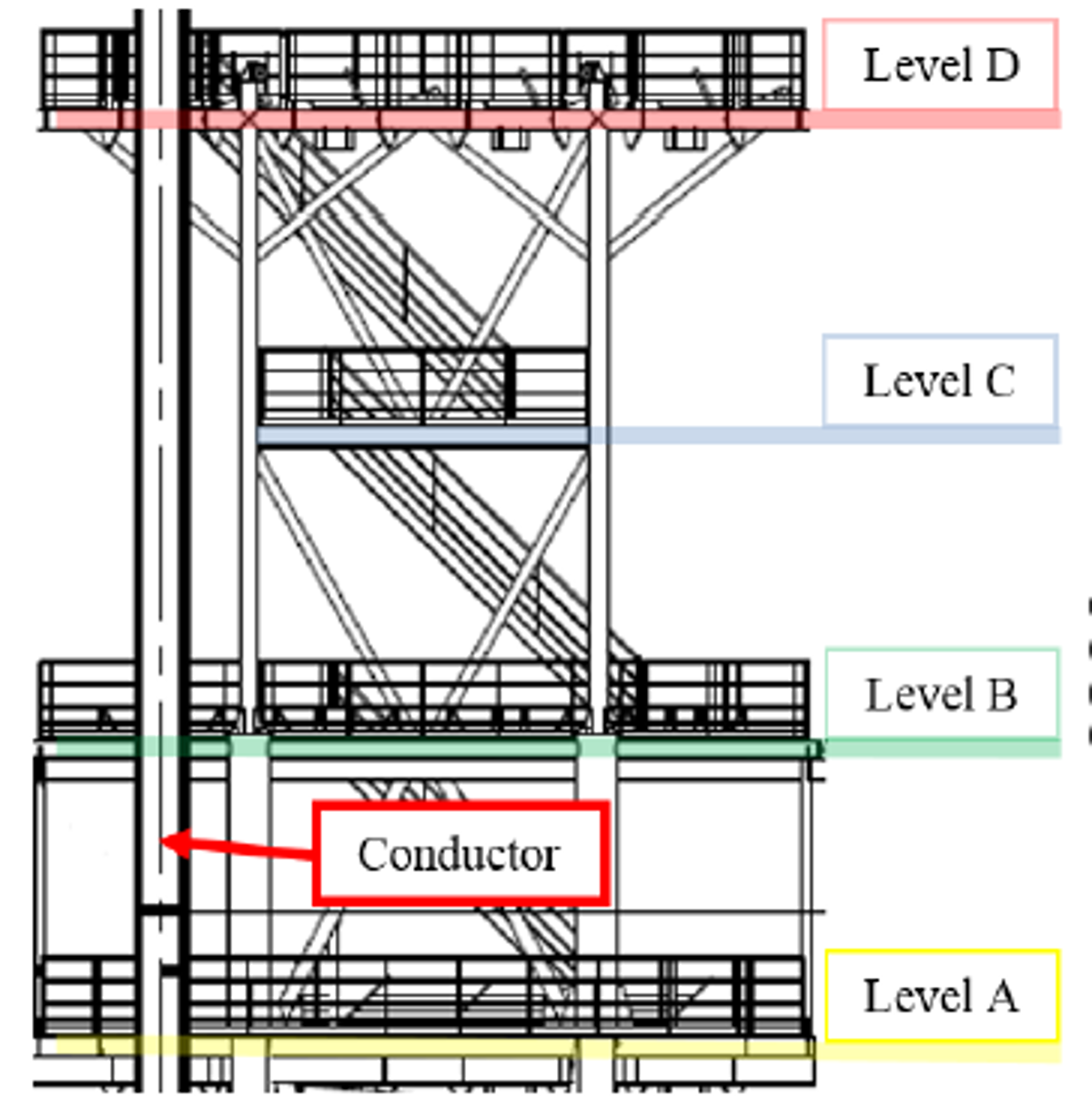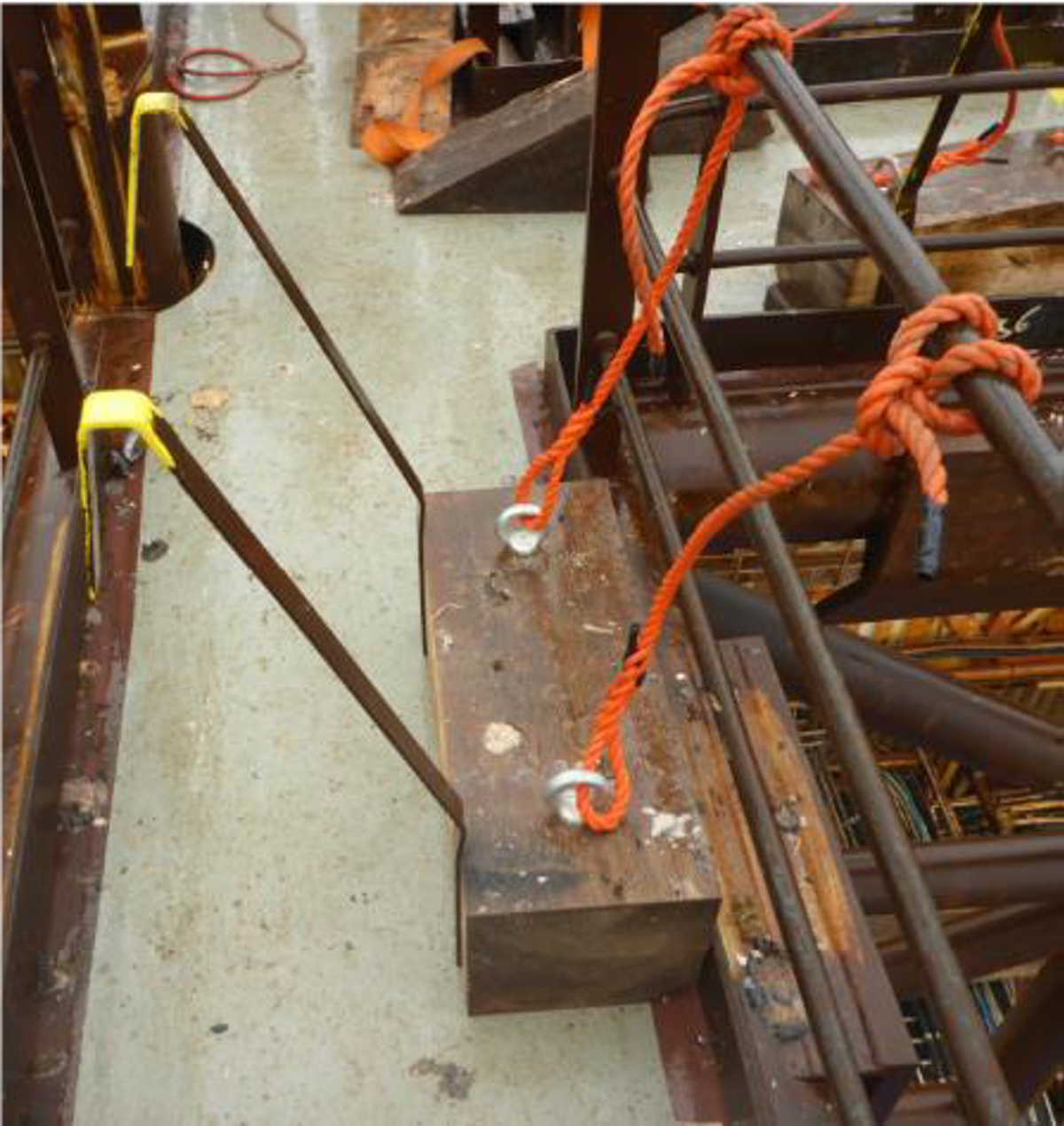Dropped wooden block in conductor support frame
- Safety Flash
- Published on 17 September 2019
- Generated on 20 January 2026
- IMCA SF 22/19
- 2 minute read
Jump to:
During a decommissioning project, a wooden wedge, weighing approximately 13 kg, dropped 6 m, striking a rigger’s hard hat and shoulder on its way down.
What happened?
The rigger suffered minor cuts; it was fortunate that his injuries were not more serious. The incident occurred during decommissioning operations using a conductor support frame (CSF) to help with the removal of conductors.
Conductors were pulled into position in the CSF by crane. To reduce horizontal movements, wooden wedges were installed, whilst the conductors were being cut in smaller sections. During removal of the wedges, one of the wedges fell and struck the rigger.

What went wrong?
As per company procedure, the wedges were to be placed into position at level B, to remove any horizontal movements of the conductor. To reduce movements from the top of the conductor, additional wedges were installed at level D (top level) of the CSF; this addition was not part of any procedure.
After completion of the sectioning cut at level A, the rigging team started to remove the wedges installed at level B, as per original procedure. Whilst removing the wedges at level B, one of the wedges installed at level D dropped to level B striking one of the riggers.

The investigation revealed that:
- Procedures had not been updated to include the additional wedges at level D.
- Management of change (MoC) was not implemented/followed.
- There was a failure of the wedge securing eyes due to vertical movement of the conductors caused by vessel/platform movement.
- It was not identified that removal of the (upper) level D wedges prior to removal of the (lower) level B wedges would have eliminated the dropped object risk.
What actions were taken? What lessons were learned?
- Any change to a procedure should be subject to MoC.
- Procedures should be updated immediately and re-issued to include any changes.
- Any changes to procedures should be communicated to all personnel potentially affected by the change.
- All persons involved should take part in risk assessments/job safety analysis (JSA) in order to ensure all hazards are identified and eliminated/controlled.
Members may wish to refer to:
- IMCA HSS001 Guidelines for management of change
- IMCA DROPS videos:
- Technip DROPS (IMCA HSS039)
- Saipem DROPS – choice not chance (IMCA HSS042)
- DROPS (IMCA HSS043) [shared by Subsea 7]
Featured Safety Flashes
-
IMCA SF 17/19
16 July 2019
-
IMCA Safety Flashes summarise key safety matters and incidents, allowing lessons to be more easily learnt for the benefit of the entire offshore industry.
The effectiveness of the IMCA Safety Flash system depends on the industry sharing information and so avoiding repeat incidents. Incidents are classified according to IOGP's Life Saving Rules.
All information is anonymised or sanitised, as appropriate, and warnings for graphic content included where possible.
IMCA makes every effort to ensure both the accuracy and reliability of the information shared, but is not be liable for any guidance and/or recommendation and/or statement herein contained.
The information contained in this document does not fulfil or replace any individual's or Member's legal, regulatory or other duties or obligations in respect of their operations. Individuals and Members remain solely responsible for the safe, lawful and proper conduct of their operations.
Share your safety incidents with IMCA online. Sign-up to receive Safety Flashes straight to your email.